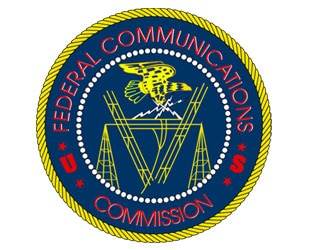The FCC on Wednesday released its first equal employment opportunity (EEO) audit letter of the year for radio and TV broadcasters, and more than 200 radio stations are subject to an audit.
AMs and FMs subject to the audit by the Commission include Entercom Classic Rocker WCMF-FM 96.5 in Rochester, N.Y., and iHeartMedia Talker WIOD-AM 610 in Miami.
Nearly 80 television stations are being audited, including Nexstar’s LIN licensee KHON-2 in Honolulu, the market’s FOX affiliate; San Diego’s main PBS affiliate; and Bonneville International Corp.’s flagship KSL-5 in Salt Lake City.

It happens every six months, and for those that may not have been subject to an audit, Wilkinson Barker Knauer LLP partner David Oxenford urges station management to not put their responses to the audit letter on a to-do list.
“It’s a lot of paperwork to put together, so they shouldn’t wait,” he tells RBR + TVBR. “There is a lot of copying and assembling of files to be done.”
And, in case anyone was wondering, this is not a letter about a possible audit. So, don’t set it aside. This is actually happening, and you better get on it today.
Responses are due March 28.
“In the swirl of news about the deregulatory efforts of the new FCC, one could almost forget that there are still many regulations in place that require significant amounts of paperwork retention by broadcasters,” Oxenford noted in a blog posting regarding the first audit of 2017.
Here are some of the key points Oxenford notes with respect to this first audit of the Ajit Pai-led FCC:
- As employment information for all stations within a named station’s “employment unit” must be provided in response to the audit, the reach of this notice goes far beyond the 300 stations targeted in the audit notices. While the FCC is considering a proposal to allow online recruiting sources to suffice to meet a broadcaster’s wide dissemination requirements, that proposal is still at an early stage and, as this audit notice evidences, the underlying rules remain in place.
- The FCC reminds stations that were targeted by the audit to put a copy of the audit letter in their public file. The response, too, must go into the file. For all the TV stations hit by the audit letter, and those radio stations that have already converted to the online public file, that will mean that the audit letter and response go into that FCC-hosted online public file.
The Commission has pledged to randomly audit 5% of all broadcast stations and cable systems each year to assure their compliance with the Commission’s EEO rules, Oxenford notes.
This includes the requirements for wide dissemination of information about job openings and non-vacancy specific supplemental efforts to educate a station’s community about job opportunities in the media industry.
The FCC also has the opportunity to audit larger broadcasters’ EEO performance when they file their FCC EEO Mid-Term Report.
The new audit letter requires all stations with five or more full-time employees (working 30 or more hours per week) to provide a significant amount of information about their EEO programs and recruiting efforts. This should include copies of their two latest annual EEO public file reports and documentation backing up the efforts listed on those reports.
Even stations with fewer than five full-time employees need to report the job titles of their employees and the number of hours they are assigned to work each week, and provide any information about law suits, EEOC complaints or similar employment actions brought as a result of equal employment or discrimination matters.
Information about any time brokerage agreement must also be disclosed.
A CLUSTER OF INFORMATION
“If any station in your cluster is on the list, all stations in that ‘station employment unit’ (defined as a group of commonly owned stations serving the same area with at least one common employee) must respond.
Thus, Entercom’s entire Rochester, N.Y. cluster and iHeart/Miami’s entire station group needs to respond to the audit letter.
There’s one exception, Oxenford points out.
“If a cluster has been audited in 2014 or 2015, or if its renewal was granted in the last 18 months, the FCC may allow you to avoid responding to this audit,” he says. “You have to request that ‘pass’ from the FCC.”
Additionally, if a station that is being audited is involved in an LMA with another broadcaster, the audit may require that the broker provide employment information as well as the licensee.
“All stations should review the audit letter as it provides a good outline of the documents that stations should be retaining to demonstrate their compliance with the FCC’s EEO rules,” Oxenford says. “Many broadcasters complain that the EEO rules are among the more burdensome paperwork requirements, and no doubt much time and money will be spent responding to this audit notice. But whether a broader review of the EEO requirements, beyond simply looking at the acknowledgement that online recruiting is how recruiting is now done, will be in the cards at the FCC remains to be seen.”
RBR + TVBR





